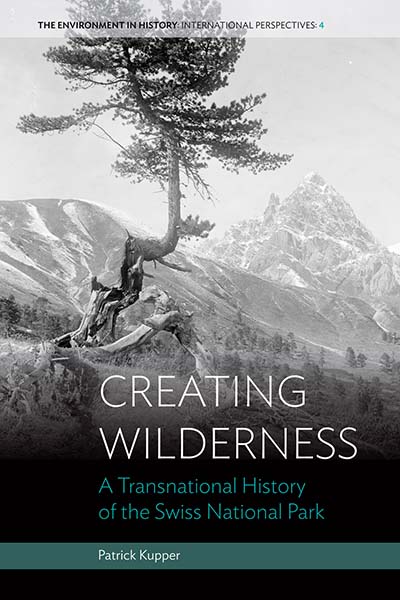 We are pleased to announce New and Forthcoming titles in our Series, Environment in History: International Perspectives.
We are pleased to announce New and Forthcoming titles in our Series, Environment in History: International Perspectives.
The relationship between human society and the natural world is being studied with increased urgency and interest. Investigating this relationship from historical, cultural, and political perspectives, the monographs and collected volumes in this series showcase high-quality research in environmental history and cognate disciplines in the social and natural sciences. The series strives to bridge both national and disciplinary divides, with a particular emphasis on European, transnational, and comparative research.
For the next 30 days, take advantage of a special 25% discount off all of our Print Environment in History: International Perspectives Series titles by entering the code EH16 in your shopping cart.
Please note that all the titles listed below are also available as ebooks. More information is available here.
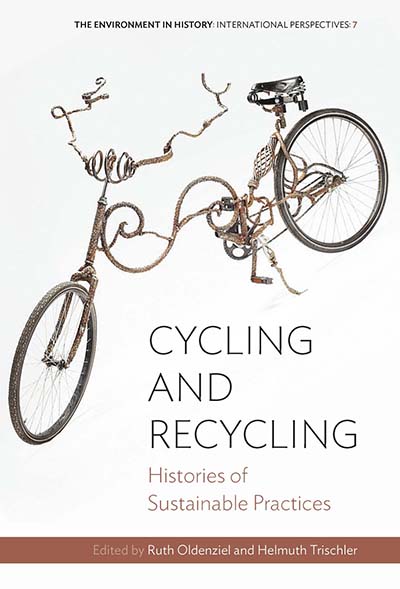 CYCLING AND RECYCLING
CYCLING AND RECYCLING
Histories of Sustainable Practices
Edited by Ruth Oldenziel and Helmuth Trischler
“This book’s conceptual framework is truly innovative and makes a much-needed intervention in the vast literature on sustainability. Writing against the ‘techno-fix mentality’ that dominates so many contemporary environmental discourses, the editors persuasively argue for the need to resurrect ‘older technologies for a new purpose.'” · Edward D. Melillo, Amherst College
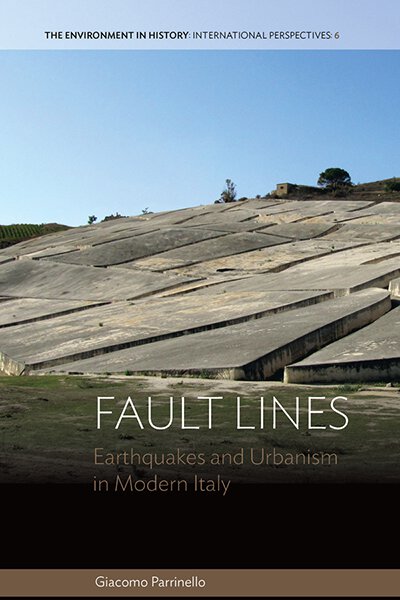 FAULT LINES
FAULT LINES
Earthquakes and Urbanism in Modern Italy
Giacomo Parrinello
“An extremely interesting and well-written book, which takes two major Italian disasters in detail and uses them to tell a series of stories about urban change, the state, national identity, and other issues . . . The author is passionate about the subject matter he is dealing with-and the material itself is red hot.” · John Foot, University of Bristol
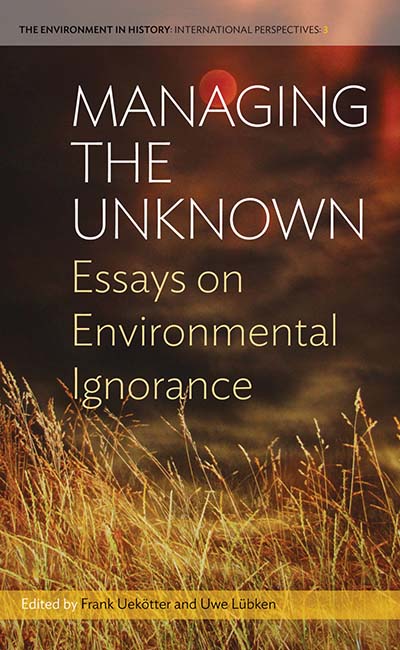 MANAGING THE UNKNOWN
MANAGING THE UNKNOWN
Essays on Environmental Ignorance
Edited by Frank Uekötter and Uwe Lübken
“This is an interesting and well written set of essays that provides fresh and illuminating insights on many important topics, which makes it indispensible to practitioners and students of environmental history across the globe. Indeed, because it comments on so many topical issues, it should be of interest to anyone concerned about current environmental problems, their origins and possible solutions (especially making manufacturing, forestry and farming sustainable, controlling waste and pollution and finding renewable energy sources). The chapters are of a uniformly high standard and the introduction expertly places them in context.” · Tom Brooking, University of Otago
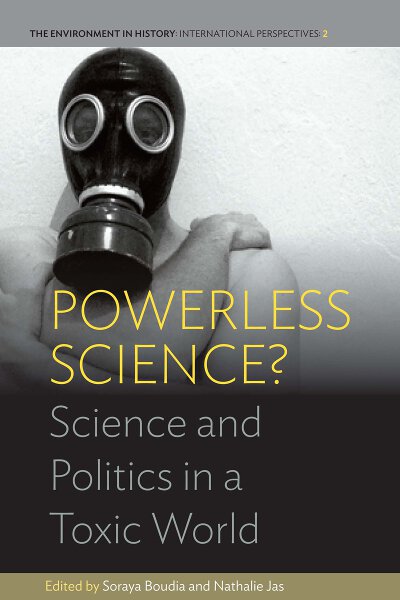 POWERLESS SCIENCE?
POWERLESS SCIENCE?
Science and Politics in a Toxic World
Edited by Soraya Boudia and Nathalie Jas
“The editors did a heroic job of assembling and connecting a group of articles from contributors active in interdisciplinary research and studies. They span multiple disciplines (sociology, history, philosophy, economics, and political science), assorted methodologies, different time frames, venues, and geographies… In summary, the absence of knowledge has powerfully shaped the history and social organization of our toxic world. And for this reason, Powerless Science? merits reading and reflective rereading.” · International Social Science Review
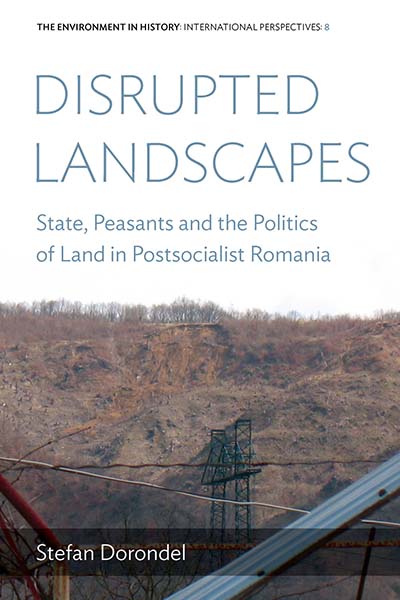 DISRUPTED LANDSCAPES
DISRUPTED LANDSCAPES
State, Peasants, and the Politics of Land in Postsocialist Romania
Stefan Dorondel
“This is clearly the best study on the environmental history of Romania published to date. It is a paragon of vivid, illustrative, and intimate local history combined with an international outlook.” · Joachim Radkau, Universität Bielefeld
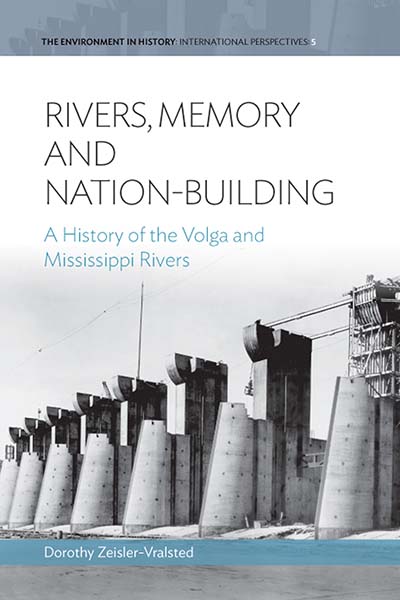 RIVERS, MEMORY, AND NATION-BUILDING
RIVERS, MEMORY, AND NATION-BUILDING
A History of the Volga and Mississippi Rivers
Dorothy Zeisler-Vralsted
“This is a concise and convincing comparative discussion of two major rivers. It is clearly shown that political systems were less important than the overarching twentieth century idea of modernization…Harnessing rivers for a free world was a common view – different ideas of ‘freedom’ may have existed, but the rivers were to be harnessed in strikingly similar ways. The comparative approach of the book, supported by appropriate details of each river and projects, allows for pointing out the main issues, questions and evidence, and shows how alike the two opposing political systems were when it came to river development.” · Maurits Ertsen, Delft University of Technology
 CREATING WILDERNESS
CREATING WILDERNESS
A Transnational History of the Swiss National Park
Patrick Kupper
Translated from the German by Giselle Weiss
“This is environmental history of the first order, ranging widely across geographical scales and historical periods to trace the changing discourses and manifestations of the national park model. Kupper convincingly proves that the Swiss national parks, while inspired by the global movement sparked by the creation of the American national parks in the late 19th century, quickly established themselves as a countermodel to the American national parks, and how the Swiss model reflected specifically European concerns.” · Andrew Denning, Western Washington University
 CIVILIZING NATURE
CIVILIZING NATURE
National Parks in Global Historical Perspective
Edited by Bernhard Gissibl, Sabine Höhler and Patrick Kupper
“This book makes a unique contribution to the conservation literature by enhancing one’s understanding and appreciation of the cultural meaning of nature conservation through the lens of national park development. […] Highly recommended.” · Choice
Environment and Society
Advances in Research
Environment and Society publishes critical reviews of the latest research literature on environmental studies, including subjects of theoretical, methodological, substantive, and applied significance. Articles also survey the literature regionally and thematically and reflect the work of anthropologists, geographers, environmental scientists, and human ecologists from all parts of the world in order to internationalize the conversations within environmental anthropology, environmental geography, and other environmentally oriented social sciences.
Explore the new blog from Environment and Society!
A multimedia site, EnviroSociety provides insights into contemporary socio-ecological issues with posts from top scholars in the social sciences that engage readers interested in current environmental topics.

